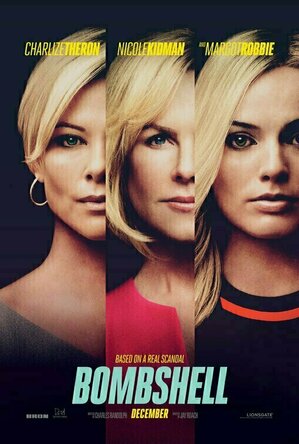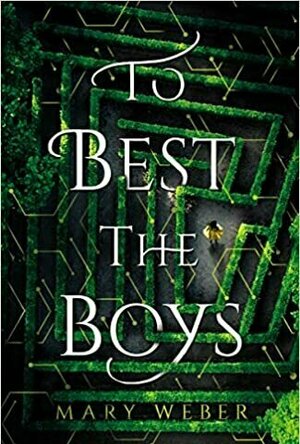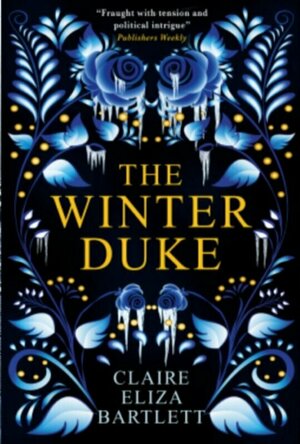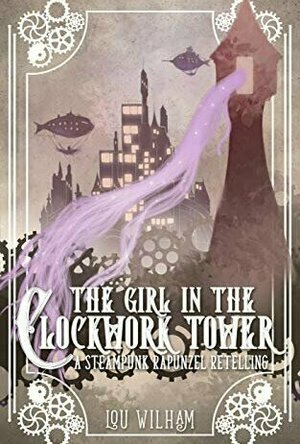Bob Mann (459 KP) rated Bombshell (2019) in Movies
Jan 26, 2020
The movie is based on the true story of the first "Me Too" case against a prominent man in power. Before Harvey Weinstein (allegedly!) there was Roger Ailes (John Lithgow), CEO of the Fox Network. Under the shadowy gaze of the Murdoch brothers (Ben Lawson and Josh Lawson), Ailes rules Fox with a rod of iron. Unfortunately, it's Ailes' - ahem - 'rod of iron' that is part of the problem.
Three women are at the centre of the drama. Megyn Kelly (Charlize Theron) is a leading anchorwoman, fighting her own battles in a man's world. She is currently in trouble with 50% of the US population for taking a firm stand on-screen against Trump's treatment of women; Gretchen Carlson (Nicole Kidman) is a broadcaster approaching her 50's and being shunted progressively towards the door, via afternoon shows, in favour of 'younger models'; Kayla Pospisil (Margot Robbie) is a keen new-starter, ambitious and keen as mustard to impress her bosses, including Ailes.
The three women seldom interact (a scene in a lift is a study in awkwardness) but are all on different stages of the same journey.
I clearly saw a review which referenced the movie as being "Adam McKay-like" since I went in assuming that McKay ("Vice", "The Big Short") was the director of this one. For that reason, I was puzzled. Yes, there were occasions where the actors broke the 4th wall; and there were little visual tricks (a burned in Fox logo for example) that entertained. But it wasn't the close-to-the-edge roller-coaster of innovation that I have come to expect from a McKay film.
When the titles rolled, it was an "Aha" moment! Actually, the director is the Austin Powers director Jay Roach. Not that he hasn't done drama as well: he did the Bryan Cranston vehicle "Trumbo" a few years back. And another MacKay link is the writer: the screenplay is by Charles Randolph, the writer of "The Big Short".
The leading ladies in this really are leading, with Charlize Theron picking up a well-deserved Best Actress Oscar nomination and Margot Robbie getting the Best Supporting nom. Theron is brilliant in everything she does, and here she is chameleon-like in disappearing into her character. I wasn't as sure about Robbie early in the film, but an excruciating "twirl" for Ailes is brilliantly done and an emotional scene during a date is Oscar-reel worthy.
Great supporting turns come from "The West Wing's" Allison Janney and from Kate McKinnon. McKinnon was the most annoying thing in "Yesterday", as the brash US agent, but here she is effective as the lesbian friend of Kayla.
Holding up the male end (as it were) is a fantastic performance from John Lithgow (surprisingly overlooked during the awards season) and Malcolm McDowell delivering an uncanny Rupert Murdoch.
Overall, the "Me Too" movement has created an earthquake in popular culture. Many more movies featuring strong female leads have appeared in the last few years, and that's great. This is a reminder of the time before that, when men openly used their power to force unwanted sex on employees. And its horrifying and disconcerting to watch.
And it was a good movie. But it just wasn't a "wow" movie for me. A female audience will by definition have more experience of this than a male one. Perhaps there is a sense of 'collective guilt' that we blokes need to work through. And perhaps that's a subconscious reason why I didn't 100% engage with the film. (Though I'd like to make it perfectly clear that I don't have any skeletons in that particular closet!)
(For the graphical review, please check out the review on One Mann's Movies here - https://bob-the-movie-man.com/2020/01/24/one-manns-movies-film-review-bombshell-2020/).

Ultimate Lion Simulator
Games and Education
App
Jump into a brand new adventure as a ferocious Lion! Brave a dangerous new world to claim your place...
Gareth von Kallenbach (980 KP) rated Call of Duty: Black Ops Cold War in Video Games
Nov 21, 2020
Unlike Black Ops IIII, Cold War features a campaign and it is one that offers players side missions, alternate in-mission objectives, dialogue options, and differing endings.
Set in the 80s but jumping in time to Vietnam and other timeline events; the player is cast as an operative named Bell. Players have the option to customize their character in terms of name, gender, backstory and such but it does not play much into the game as “Bell” is what players are known by.
From Eastern Europe, to Vietnam, Cuba, and other locales, the game includes 80s technology and music as players must stop a Soviet General named Perseus from unleashing a Nuclear onslaught.
As fans of the series can guess; players will undertake various missions using combat, stealth, infiltration, elimination, recovery, and more to save the day. There are all sorts of weapons for players to select from ranging from Western to Eastern and allows players to experience a variety of options from sniping, run and gun, and even a Bow.
Vehicles also play a part of the game but they are more heavily featured in the multiplayer portion of the game.
The game does offer variations on the ending based on a player’s choice of completing side missions and choices they make along the way and the game also offers players the chance to grab enemies and use them as a shield in taking on enemy fire. This is one option I would love to see appear in multiplay.
The graphics are solid and some of the landscapes from jungle to frozen tundra really stand out as I was playing on an EVGA 2700 GTX card. The game was also considerably more stable than Modern Warfare was at launch as I did not encounter any issues with my gameplay.
At first I thought the campaign was short but I later realized I had become so engrossed in it that I mistakenly thought so. The levels do offer some real treats which I would love to discuss but do not want to spoil.
Multiplay is the bread and butter of the series as it is what drives the popularity of the series along as players will spend countless hours leveling up, customizing, and playing the various maps and modes as new content arrives until the release of the next game in the series.
Some have complained that the maps are a bit sparse and uninspired but I have enjoyed my time in the multiplayer and enjoy the fact that I can now select only the modes I wish to play for Quickplay to avoid being placed in a mode I do not wish to play.
The Co-Op Mode I enjoyed so much in Modern Warfare is gone this time around in favor of a Zombie mode and while it does not shake things up much from the prior Zombie offerings; it does offer plenty of entertainment and I look forward to seeing more content in the future.
There is an Assault mode where players can use vehicles ranging from Tanks, Snowmobiles, Jet Skis, Gun Boats and more which adds to the fun as ramming your ride into a landing area which an explosive attached is great fun.
The only issue I had with the game was with Warzone as attempting to launch it took me to desktop and out of the game so hopefully this will be smoothed out soon as new updates are already out for the game and next week will see the return of the popular Nuketown map which now is updated to 1984.
In the end Black Ops Cold War does not reinvent the franchise but rather gives players more of what they have come to expect with a few new wrinkles to the mix.
4 stars out of 5
Ivana A. | Diary of Difference (1171 KP) rated To Best the Boys in Books
Oct 5, 2020
I will be honest with you and say that this book didn’t deliver. Maybe it was my expectations, after all, that got me too excited for my own good.
Let’s start with Rhen. She is a girl that loves science, and her father has taught her everything he knows. They are poor family and don’t have all the equipment in the world, but that doesn’t stop them to keep discovering and learning every day. In their kingdom, an unknown disease comes around, and Rhen’s mum is ill, with no cure yet. Rhen wants desperately to find a cure, and a rich boy wanting to marry her might promise her all the equipment she needs, but now it’s time that she lacks.
When the men’s annual tournament is about to begin, with boys fighting for the science scholarship, Rhen knows that she has no choice but to enter, disguised as a boy, and try to win this – for her, for her dad, and most importantly, for her mum.
The book flows really slowly. We get to about half of the book when Rhen decides to enter the tournament. I expected this to happen in the first couple of chapters, and to then have the adventure from within the labyrinth. For me, it was quite a slow beginning, but some of you might enjoy that. The writing is beautiful throughout.
>I loved the fighter within Rhen. She is a fierce person, determined to fight for what she wants. Even though throughout the book she has trouble with realising what is it that she really wants, we can see a bit of character development in her.
As a book that is supposed to cover gender equality, and women fighting for the same rights as men, this book didn’t really deliver. The letter states that every gentleperson – not gentleman. Which means, that inequality never truly exists at all. Women could have entered this competition, but they just chose not to.
The whole competition, the labyrinth and the scholarship lacks details and has enormous loopholes: one scholarship is given to one person – the one that wins the labyrinth. And after the winner is chosen, we have a scene where they all take a test, including the winner?
The disguise was a huge and important part of this book, as Rhen and her friend are pretending to be boys. Rhen cuts her hair, and her friend just pins it and ties it with a hat. They both wear boy clothes and barely remember to lower their voices. And that is all they do to not get recognised. And somehow, the people that know them their whole life fail to recognise them. A bit unbelievable…
I wish I loved this book, because I truly fell in love with the cover and the synopsis. But the whole labyrinth set-up seemed to be a side-story, with the illness being the main story, and the realisation of what Rhen actually wants to achieve. Random characters were introduced, that didn’t drive the story one bit, and the author also happened to throw in an inconsistent romance and a love triangle.
I hate to say this, but the book seems like an unfinished draft. It seemed so promising, and all I thought I would get out of this was non-existent.
I am not sure if I would want to recommend this book to you guys. If you want to give it a try, I encourage you, and would love to talk about it and hear what you think, but if you are here because you loved the synopsis, this book will probably not satisfy you
Lottie disney bookworm (1056 KP) rated The Winter Duke in Books
Oct 13, 2020
Ekata is a middle child within the Avenko royal family: a family who are intent on murdering each other to get to the throne. However, Ekata has no interest in the throne at all: her interests lie in biology rather than brokering treaties and she wants nothing more than to leave Kylma Above and attend university.
However, at the age of thirteen, Ekata wakes to find herself the only member of her family who has not been cursed into a permanent sleep. Suddenly, she is the Grand Duke and is expected to prove herself worthy to rule Kylma Above: conquering the world of politics and magic in order to find a way to wake her family and avoid death herself.
The Winter Duke spans only six days in its storyline. Nonetheless, this does not diminish the journey that Bartlett takes her readers on: there are twists at every turn and almost everyone seems like a villain; neither Ekata nor the reader knows whom they can trust.
Although this is very much Ekata’s story, there are so many characters surrounding her that there is a danger some of these may seem undeveloped. Thankfully, I didn’t feel this way at all. Bartlett brings something different to each character she introduces: from Sigis’ immediate repulsiveness; Eirhan’s deadpan nature and Inkar’s flirty charms. All the characters have their part to play and, although keeping track of all the ministers could be difficult at times, this only added to the overwhelming suffocation that Ekata must be feeling.
Ekata herself is an amazing protagonist: at just thirteen she makes a number of impulsive decisions which end disastrously – so why do we, as a reader, not get frustrated with her? Again, I feel that this is due, in part, to the dizzying number of secondary characters. The reader witnesses the sheer number of commitments that fall onto the shoulders of one who never aspired to this role: we attend unwanted proposals; hear the accusations of murdering her own family; comprehend that she is used as a pawn by her Prime Minister and constantly see Ekata’s authority undermined due to her sex. It is impossible not to empathise with her desperate need to return to her normal life.
Sexism plays a large part in Ekata’s story, with Sigis immediately heralded as the solution to her problems due to his position as a strong man with an army. Inkar is also underestimated due to being female: before she then shatters these perceptions with her axes, her willingness to fight and her protective nature over Ekata.
However, The Winter Duke has to be commended for the gender fluidity within its pages. The brideshow is made of men and women, at least one minister is non-binary and the only romance within this novel is between two queer females. This was such a natural romance as well, slow-burning and cautious due to the politics involved but one that, when the walls of both women came down, could achieve the impossible.
The world building by Claire Eliza Bartlett in this novel is second to none. Kylma Above is impressive with its ice palaces and winter roses invading every corner. However, Kylma Below, the duchy below the ice is magical and sinister in equal measure. With fields of magic, sharks used in tribunals, and coral gardens, it wasn’t only Ekata who wanted to explore further.
Quite a few YA novels recently have included queer women smashing the patriarchy. This is the first one I have read where they smash the autocracy.
Ekata’s journey to find out what kind of ruler she will be is encapsulating and riveting. In a story where the betrayal just keeps coming, Ekata remains loyal to the end – despite the epilogue proving that this is never appreciated. The world of Kylma was immersive and the themes of politics, murder, sexism and violence are swept up by the breezy writing style to create a book that was impossible to put down.
Thank you to Netgalley for giving me the opportunity to read and review this wonderful novel.

Simple Home Health Exercises: Easy fitness workout
Health & Fitness and Photo & Video
App
Home exercises will give you simple and easy fitness workouts videos which you can try at home. We...

Fruzo – Free Video Chat & Dating Social Network
Social Networking and Lifestyle
App
Welcome to Fruzo, a unique video chat and dating social network which helps you connect with people...

Ultimate Horse Simulator
Games and Education
App
Gallop into a brand new adventure as a beautiful wild Horse! Live wild and free in a gorgeous new...

Ultimate Wolf Simulator
Games and Education
App
Jump into a brand new adventure as a wild Wolf! Survive in a massive world of wilderness that’s...
Lottie disney bookworm (1056 KP) rated The Girl In The Clockwork Tower in Books
Aug 30, 2021
Dashing captain of an airship? Check.
Magic? Check.
Weird obsession with pineapples? Check!
The Girl in the Clockwork Tower is a steampunk Rapunzel-inspired tale full of adventure and magic and great, well-developed characters.
Persinette was brought to MOTHER headquarters at the age of 8 and has since been used as a seer, tracking the ‘Enchanted’ so that they can be captured by MOTHER’s agents and placed in concentration camps. 16 years later, Persinette, or Persi, doesn’t take the entrapment of her own kind lightly but is under constant threat from her controlling agent Gothel who makes it clear that once Persi is no longer useful to MOTHER, she will be disposed of.
Luckily for Persi, the Enchanted are not completely defenceless and the ‘Uprising’ have also noticed her talents. Captain Manu Kelii is tasked with recruiting Persi to their cause but can the charming airship captain protect the Seer from the formidable MOTHER?
Lou Wilham’s characters are so well developed you will feel as if you have known them forever. Persinette begins her adventure as a timid, downtrodden, lavender haired girl: used as an asset for as long as she can remember. However, by the closing pages, Persi is a survivor, wielding her new-found magic and is unwilling to be an “asset” for anyone but herself.
Despite Persi’s evolution from broken to badass, Captain Manu Kelii steals the show. Manu is a puppy dog, so eager to please and very confident in himself. When he finally receives a mission from the leader of the Uprising he is like a kid at Christmas and his bizarre obsession with pineapple provides both humour and an almost arrogant air about him. However, Manu’s clear adoration and care for Persi really cause him to grow as a character: this is potentially the first time Manu has worried for someone other than himself.
I would have liked a little more backstory from Manu, we know how he came to be on the ‘Duchess’ and we know him now but what happened in the meantime? It would be nice to have a little more insight into our pirate captain’s previous adventures.
Some reviewers have said this book is not a true Rapunzel retelling and I can see what they mean to a certain extent. I can certainly appreciate that the towns of Pascal and Maximus, the organisation Mother and agent Gothel do feel quite forced. However, Persinette was the “maiden in the tower” of literature before Grimm’s Rapunzel grew her first curl and when you think that Wilham’s Persi is imprisoned in a tower, desperate to explore the outside world but, most importantly, to discover who she truly is, you start to realise that the stories aren’t a million miles apart after all.
That being said, the cute Disney-esque details weren’t really needed, they certainly weren’t what made this story great: The Girl in the Clockwork Tower would have easily stood its own ground without any affinity to Rapunzel being made.
It shouldn’t need adding but sadly the lack of diversity in other novels means that readers find it refreshing and reassuring when LGBTQIA characters are included and Lou Wilham does not disappoint. Eddi, the leader of the uprising uses gender neutral pronouns and Benard and Owen are the cutest “gay dads” to Manu.
I really appreciated how these characters’ genders or sexuality were not under a spotlight: pronouns were used and relationships were explained, just as they were with Manu and Persi and that is just how it should be.
The Girl in the Clockwork tower is a gritty fairytale; complete with love, magic, villains, airships, concentration camps and a fair amount of alcohol on Manu’s part! Persi’s adventure sees her discovering her strength, her magic and maybe even finding love: this is one damsel who doesn’t need a man to save the day!
Thank you to Booksirens. I received an advance review copy for free, and I am leaving this review voluntarily.




